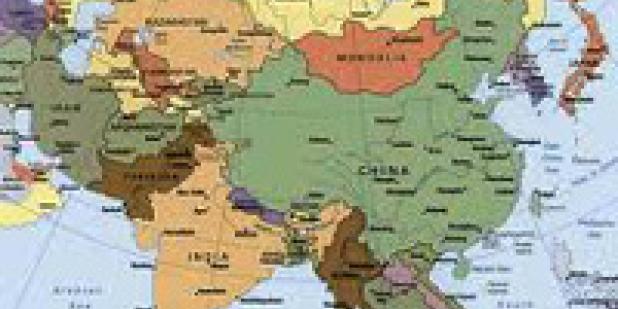Join us for a free one-day workshop for educators at the Japanese American National Museum, hosted by the USC U.S.-China Institute and the National Consortium for Teaching about Asia. This workshop will include a guided tour of the beloved exhibition Common Ground: The Heart of Community, slated to close permanently in January 2025. Following the tour, learn strategies for engaging students in the primary source artifacts, images, and documents found in JANM’s vast collection and discover classroom-ready resources to support teaching and learning about the Japanese American experience.
Democratic Accountability and Foreign Policy Commitments in Asia
Yale will hold a conference on how electoral and legislative politics interact with security and foreign economic policy in East Asia.

The collapse of the long tenure of the LDP government in Japan reminded observers of East Asian international relations of possible tensions between electoral outcomes and long-standing foreign policy commitments. The DPJ’s 2009 electoral commitment to relocating the Futenma Air Station that deviates from the 2006 bilateral agreement epitomizes such a case. While the DPJ tried to attract electoral support in Okinawa and cement non-LDP parties’ electoral pacts, the Hatoyama administration faced almost non-existent room for diplomatic bargaining and eventually encountered erosion of domestic political support. The Japanese case is not alone in the sense that democracies in East Asia, namely Japan, South Korea, and Taiwan, all underwent revisions of foreign policy due to domestic partisan turnover in the government. The conference will shed light on the electoral and legislative dynamics that structure foreign policy choices in these three democracies in East Asia. Underlying the structured choices are the bilateral security arrangements with the United States and the shadow of rising China. Given this context, this conference will pay closer attention to how electoral and legislative politics interact with security and foreign economic policy in East Asia.
By bringing these three empirical cases to broader comparative perspectives, this conference will examine how institutional configurations of the domestic political players and the structure of international bargaining affect eventual policy choices. The comparative analysis of the lessons drawn from these three political systems will contribute to both academic inquiries on the domestic foundations of foreign policy and policy deliberation concerning the future of East Asia.
Presentations include:
Partisan Governments and Foreign Policy: Is the Pacific-East Asia different from the North Atlantic?
Nobuhiro Hiwatari - Institute of Social Science, University of Tokyo
The Rising China and Its Policy Toward East Asian Neighbors
Jessica Weiss - Department of Political Science, Yale University
The Rise of the DPJ and Japan’s Security Policy Commitments
Jun Saito - Department of Political Science, Yale University
Partisanship and South Korean Foreign Economic Policy
Min Gyo Koo - Graduate School of Public Administration, Seoul National University
Partisan Turnover of the Korean Presidency and the North Korea Policy--Reciprocity of Korean Security Policy to North Korea and the US: The Process of Divergence and Convergence"
Young-Geun Kim - Keimyung University
A New Approach to the Maritime Dispute Involving a Former Colonizer-Colony Pair: The Case of the Dokdo-Takeshima Dispute between Japan and Korea
Hee Min Kim - Department of Political Science, Florida State University
Taiwan's Domestic Public Opinion and Its Relations with the Mainland China
Emerson Niou - Department of Political Science, Duke University
Partisan Governments and Taiwanese Security Policy
Yasuhiro Matsuda - Institute for Advanced Studies on Asia, University of Tokyo
Featured Articles
Please join us for the Grad Mixer! Hosted by USC Annenberg Office of International Affairs, Enjoy food, drink and conversation with fellow students across USC Annenberg. Graduate students from any field are welcome to join, so it is a great opportunity to meet fellow students with IR/foreign policy-related research topics and interests.
RSVP link: https://forms.gle/1zer188RE9dCS6Ho6
Events
Hosted by USC Annenberg Office of International Affairs, enjoy food, drink and conversation with fellow international students.
Join us for an in-person conversation on Thursday, November 7th at 4pm with author David M. Lampton as he discusses his new book, Living U.S.-China Relations: From Cold War to Cold War. The book examines the history of U.S.-China relations across eight U.S. presidential administrations.




